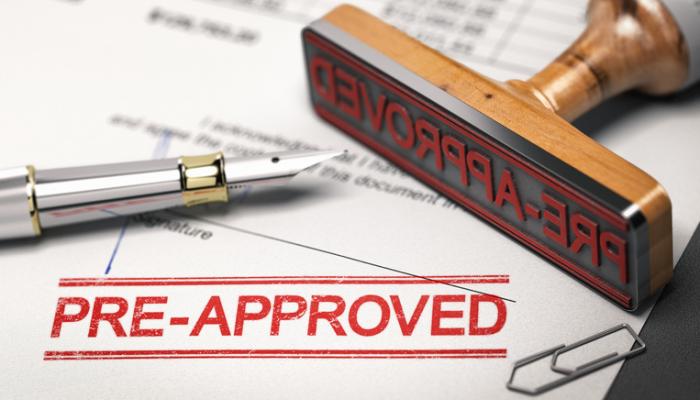Veterans and service members can look to qualify for a VA home loan using retirement income, which is great news for many homebuyers. You will need to be able to verify this income in order to qualify for the home loan.
Retirement is an exciting time, marking the beginning of a new chapter in life. For Veteran homebuyers, using retirement income is one way to qualify for a VA loan.
VA loans offer unique benefits such as no down payment and no private mortgage insurance, making them an attractive option for many Veterans.
In this article, we will explore the ins and outs of using retirement income to qualify for a VA loan and discuss the factors to consider when deciding if a VA loan is the right option for you.
Can I Get a VA Loan if I’m Retired?
Yes, you can absolutely still use the VA loan benefit if you are retired, as long as you meet VA service requirements. Additionally, you’ll need to meet your lender’s credit and income requirements.
VA Home Loans and Retirement
Military members preparing to retire from service may be able to count their pending retirement income toward loan qualification, even before their retirement fully takes effect.
At Veterans United, we typically need to have your official start date and exact retirement pay in writing. Lenders may be able to verify the rate of pay with a signed statement from the service member’s commanding officer or through a Defense Department retirement income calculator. You would qualify based on the lesser of either your current full-time income or your retirement income.
In addition, you may need cash reserves available depending on the length of time between your last full-time paycheck and your first retirement payment. Lenders may have a limit for how many days they’ll allow counting pending retirement income.
The above is generally true for Veterans who are retiring from their civilian careers. All in all, the core of income verification is about assessing your risk as a borrower and making sure you are in a place where you can take on monthly mortgage payments.
Verifying Retirement Income for VA Loans
Lenders can count it toward mortgage qualification if you’re already receiving retirement income. Remember, guidelines and requirements can vary by lender.
Generally, at Veterans United, we’ll typically need to:
- Verify the retirement income through bank statements, awards letters, or IRS Form 1099-R documents for the past two years
- Determine that your retirement income is likely to continue for at least three years
Veterans can look to utilize retirement income from an employer and Social Security and Social Security Disability Insurance income.
Other Forms of Income
Utilizing your retirement savings isn’t the only way to finance a VA loan after retirement. Note that VA loan income guidelines are discretionary, and evaluated on a case-by-case basis. The key thing being evaluated with income is that it’s consistent and verifiable. Beyond using your pension or savings, there are a variety of income streams to pull from:
Disability Income
Some Veterans are eligible to receive disability pay for service-connected disabilities. The VA recognizes disability pay as a verifiable income source that you can use towards a VA loan.
Part-time Employment
Consistent, part-time income can count towards your overall monthly income even if you are retired.
Rental Income
Income earned through renting out a room or owning and renting out a property is verifiable income according to the VA.
Household Income
If you have a child or other person living with you long term, you may also count their income as part of your household income.
Retirement Funds as Reserves
Another way retirement funds can come into play is if you need to make a down payment or come up with cash reserves. This is a $0 down loan program in most cases, but there are times when either or both of these could be needed for a VA loan.
Generally, if you’re entitled to a pension but still working, lenders may need to verify that you can access the money before your retirement. Many pension plans are only accessible when the person retires, quits their job, or dies.
Buyers can more easily extract money from 401k-type plans, although there may be financial penalties for making an early withdrawal. Borrowers who tap into retirement income for a down payment will need to document the deposit.
Again, remember that guidelines and policies on using retirement income can vary by lender. A Veterans United VA Loan Expert can review your situation at 855-259-6455 to help determine the best path toward homeownership.
Answer a few questions below to speak with a specialist about what your military service has earned you.
Related Posts
-
 Can Your Mortgage Be Denied After Preapproval?It is possible for you to get denied for a home loan after being preapproved. Find out why this may happen and what you can do to prevent it.
Can Your Mortgage Be Denied After Preapproval?It is possible for you to get denied for a home loan after being preapproved. Find out why this may happen and what you can do to prevent it. -
 VA Renovation Loans for Home ImprovementVA rehab and renovation loans are the VA's answer to an aging housing market in the United States. Here we dive into this unique loan type and the potential downsides accompanying them.
VA Renovation Loans for Home ImprovementVA rehab and renovation loans are the VA's answer to an aging housing market in the United States. Here we dive into this unique loan type and the potential downsides accompanying them.


